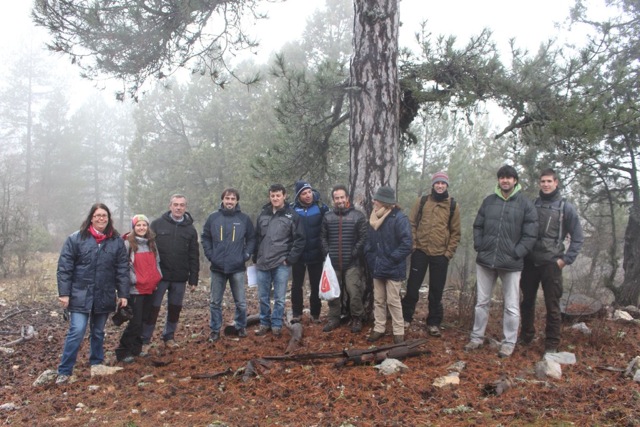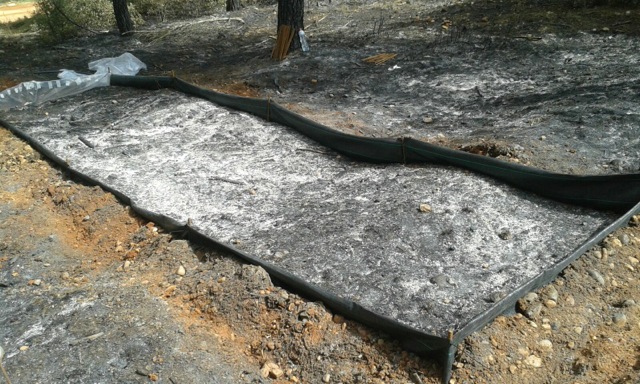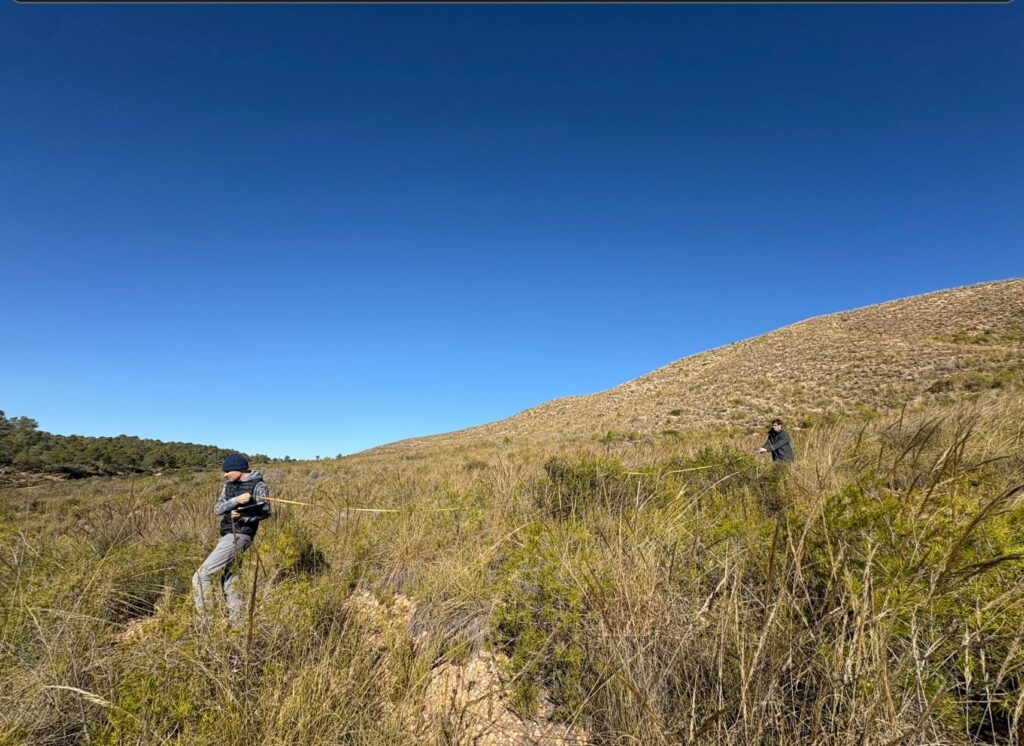Research Project: Fire Severity Reduction through New Tools and Technologies for Integrated Forest Fire Protection Management “GEPRIF”
(RTA2014-00011-C06-05). Project Leader: Dr. Carmen Hernando Lara.
The forest fires are the main threat to many Spanish forests landscapes with significant environmental and socioeconomic impacts. Forecasts of changes in climate and land use management portend a worsening problem. Therefore it is essential to have new tools and appropriate technologies for the forest ecosystems protection against fire. The proposal is based on the hypothesis that fire severity, defined as the magnitude of fire effects of fire on an ecosystem, is a key aspect to consider in management strategies planning aimed at the protection against forest fires through: prevention, suppression, restoration, and their interrelationships. Consequently, we will develop methodologies, tools and technologies for the management and landscape planning to reduce the impact of fires, applicable before, during and after the fire, through the achievement of the following objectives:
- Obtain new systems for quantifying forest fuels
- Integrated evaluation of preventive treatments in forest fuels to reduce fire severity, based on its effectiveness, longevity and ecological effects on soil and vegetation
- Estimate the difficulty of fire suppression and mop-up and operational capabilities along with the influence of smoldering phase on soil burn severity
- Predict the potential severity of forest fires and the effects of preventive treatments to determine priority areas for action, both preventive and post-fire rehabilitation
- Assess the most important actions of post-fire restoration and testing new biodegradable materials for reducing post-fire erosion risk
- Evaluate the economic efficiency of prevention, suppression and rehabilitation
- Dissemination and transfer of project results
We expect the project to generate scientific and technical information related to fuel management, actions and opportunities in suppression and mop-up activities, as well as on the post-fire recovery processes and urgent rehabilitation actions. The final goal is to achieve a more integrated and efficient protection of forest landscape in the context of sustainable forest management.




Research Project: Spanish Black Pine (Pinus nigra Arn. ssp salzmannii) adaptation to climate change.
POII10-0112-7316. Castilla La Mancha University and Castilla La Mancha Government. Project Leader: Dr. Antonio del Cerro Barja.
The increasing concentrations of gases associated with the changes in climate and air pollution will affect forest ecosystems in a way that is still unknown. Trees, with longer life cycles than those of annual plants, will be affected by the rapid changes generated by the fluctuation of temperatures and precipitation, since they are not able to respond to migration mechanisms or genetic selection in short periods of time. Forests are particularly sensitive to climate change; their long life and slow growth do not allow rapid adaptation to environmental changes. Forest adaptation measures need to be planned and should be anticipate to the expected changes in growth conditions, since the forests that are today in regeneration are those that will suffer the climatic conditions in the coming decades, even centuries. Therefore, it is necessary to determine how the current environmental conditions interact with different levels of genetic diversity and the impact generated in forest populations. For these reasons, one of the main objectives of this project is to understand both genetic variability and the factors that determine the ability of forest to respond and adapt to the environment by focusing the study on the mass of Pinus nigra Arn. ssp salzmannii of the Iberian Peninsula, given its special adaptation to drought and special soil.
Involved Institutions: University of Malaga, University of Valencia, Andalucía and Castilla La Mancha Governments, Castilla La Mancha University.


Improving resilience and decreasing vulnerabulity of Mediterranean Forest ecosystems affected by wildfires
Main researcher: Manuel Esteban Lucas Borja
Institution Funding: Castilla La Mancha University and Albacete Council
The project aims to assess the eco-hydrological effects some soil and plant restoration measures such as for example check dams, log debris or rock check dams at watershed affected by forest fires. We will also evaluate the economic cost of such tools responding the following questions: how much money do cost to retain a ton of soil after a forest fire? or what investment is needed to recovery the levels of biodiversity prior to the fire?

Research Project: FLAME – Fire‑Led Alteration of Mediterranean Forest Ecosystems: Best Forest Management Practices for a Sustainable Future of Pine–Shrubland Transitions (PID2024‑161205OB‑C21)
Project Leader / Coordinated Project PI: Prof. Manuel Esteban Lucas Borja (University of Castilla-La Mancha)
Mediterranean forest ecosystems are undergoing rapid and profound transformations driven by increasing wildfire recurrence, greater fire severity, and the accelerating impacts of extreme climatic events. These pressures are reshaping the structure and functioning of pine forests, altering ecohydrological processes, modifying ecosystem multifunctionality, and pushing landscapes toward shrub‑dominated systems. Understanding these transitions —and designing effective post‑fire management strategies— is now essential for safeguarding the ecological integrity and long‑term sustainability of Mediterranean landscapes. The FLAME project addresses this challenge through a multidisciplinary and mechanistic approach, integrating hydrology, ecology, plant functional diversity, remote sensing, geo‑statistics, and adaptive silviculture. The project focuses on transitions from Aleppo pine (Pinus halepensis) forests to shrublands across five fire‑affected clusters in Spain, spanning semi‑arid to dry Mediterranean climates. Using field experiments, advanced modelling techniques, and high‑resolution remote sensing (including Sentinel‑2 indices), FLAME quantifies the ecological consequences of wildfire‑driven changes and evaluates post‑fire management strategies aimed at restoring resilience and maintaining ecosystem services.
